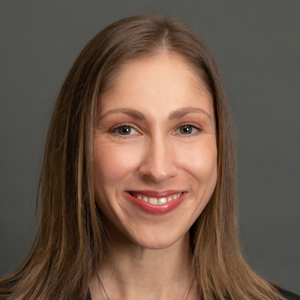In the Words of Direct Care Workers: Dessaline Watkins
As part of our new report on the direct care workforce, we’ve been speaking with direct care workers from around the country, drawing on their wisdom and experience to help inform the future of this sector. Our third interview is with Dessaline Watkins, a Direct Support Professional at Misericordia in Chicago, IL. She has been a direct care worker for four years.
ON WHY SHE DECIDED TO BECOME A DIRECT SUPPORT PROFESSIONAL
“I have a niece with developmental disabilities who I was very involved in raising, and Misericordia was one of the organizations I was introduced to while working with her. I was really impressed with the level of care and support I saw the workers giving to residents and thought, ‘Wow, this is a job I would love to do.’ I saw firsthand how the support my niece received growing up allowed her to blossom and enjoy a full life. Now I work with Misericordia to do the same for others.”
ON WHAT SHE ENJOYS MOST ABOUT HER JOB
“I enjoy giving my time and working directly with residents to help them be the best version of themselves. I have eight children, including two sets of twins. I am very caring and feel that my job as a DSP is an extension of my life as a mother. Both roles require empathy, patience, and communication skills. I have a big family at home and a big family at Misericordia.”
ON WHAT SHE FINDS MOST CHALLENGING IN HER ROLE
“Learning how to decompress and separate the stress of the job from the rest of my life can be difficult. When you deal with people you care about on a daily basis, you tend to bring those cares home with you. It is very stressful being directly responsible for a person’s wellbeing. Keeping residents safe is a huge responsibility that families give us, and I take that very seriously. I am the type of person who is always trying to figure out better ways to do my job and to solve problems. I often leave work thinking,‘How can I reach my residents in a better way?’ and that can be hard to turn off when I get home.”
ON HER RELATIONSHIP WITH HER RESIDENTS
“My relationships with my residents are multifaceted. It is not just black and white, where I am their staff and they are my residents. Yes, I am their staff and my job is to support them, but I am also a mentor, a friend, and I provide guidance. The residents are also here for us. If I come to work and am not in the best mood, they make me feel better and are concerned for me as well.”
Read our recent report, It’s Time to Care: A Detailed Profile of America’s Direct Care Workforce >>






